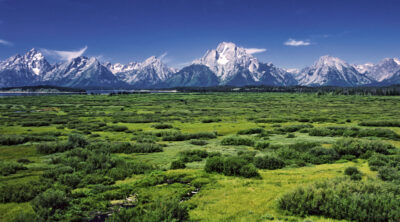
Sign up for daily news updates from CleanTechnica on email. Or follow us on Google News!
The Biden Administration took another big step this week in securing its environmental legacy. A new decree will protect the East Coast, the West Coast, the eastern Gulf of Mexico, and Alaska’s Northern Bering Sea from offshore oil and natural gas drilling. With the inclusion of coastline areas from Washington to California and Maine to Florida, the new designation will protect about 625 million acres from future drilling.
This announcement is significant in many ways. Nearly 40% of US residents live in coastal communities. Borrowing from the Antiquities Act that many US presidents have used to protect national treasures, the Administration has eliminated risks brought by speculative drilling to these local areas and their fishing and tourist industries, environment, and public health.
The ban also addresses climate concerns about potential oil spills and other ecological damage.
What is the Legal Precedent behind the Offshore Oil and Drilling Memoranda?
President Biden used his authority under Section 12(a) of the Outer Continental Shelf Lands Act to write the two Presidential Memoranda; the Act allows him to withdraw any unleased areas of the Outer Continental Shelf from future offshore drilling. An obscure provision of the 1953 law gave the Administration wide latitude to withdraw federal waters from future oil and gas leasing.
Previous presidents have used withdrawal provisions to preserve walrus feeding grounds, US Arctic waters, and other sensitive marine resources. Former President Dwight Eisenhower created the Key Largo Coral Reef Preserve in 1960; the Preserve remains protected today. Former President George H.W. Bush also invoked the provision to block oil leasing along the West Coast, Northeast US, and southern Florida for a decade.
Environmental advocates have long argued that new drilling is inconsistent with the need to sharply reduce greenhouse gas emissions from burning oil and gas that are dangerously warming the planet. Members of the business community, defense advocacy groups, and the public have called for areas to be permanently protected.
“Restricting offshore drilling is a big win for the climate, marine wildlife, coastal communities and economies, and would be yet another chapter in President Biden’s historic climate legacy,” said Ben Jealous, executive director of the Sierra Club.
Oceana Campaign Director Joseph Gordon cited the “billions of dollars of economic activity that depend on a clean coast, abundant wildlife, and thriving fisheries” in commending the new protections. Gordon noted that “our treasured coastal communities are now safeguarded for future generations.” A 2021 analysis by Oceana found that ending new leasing could prevent more than $720 billion in damage to people, property, and the environment. The oil industry currently holds more than 2,000 leases, according to a 2023 Oceana report, with 75% of that ocean acreage currently unused.
The Biden administration’s decree now permanently protects extensive coastal areas. With the Trumpsters salivating at the thought of ravaging so many protections in place for everyday Americans, though, can the Outer Continental Shelf really be protected from future offshore oil and gas drilling?
The Trump Administration Roils as Biden Reinforces his Environmental Legacy
While section 12(a) of the Outer Continental Shelf Lands Act gives a president wide leeway to bar drilling, it does not include language that would allow any subsequent president to revoke a ban. Insiders say Trump is indignant.
Trump’s former attempt to overturn President Barack Obama’s offshore drilling ban in parts of the Arctic Ocean and dozens of canyons in the Atlantic Ocean was unsuccessful. In 2019, US District Court Judge Sharon Gleason in Alaska ruled that Obama’s ban could not be undone without an act of Congress.
The offshore oil and gas drilling ban further grounds Biden’s legacy on climate change. Rather than agreeing with activists who pushed for a climate emergency, which many argued would be largely symbolic, the Administration concluded it would be more meaningful to make some federal waters off limits to drilling.
Biden is already on track to protect more US lands and waters than any other president. His administration designed a program for selling offshore leases that allows just three auctions over the next five years, a record low.
In other actions to enhance his environmental legacy, the Biden administration has recently:
- finalized grants and regulations to kick-start clean energy development;
- designated two new national monuments in California, protecting hundreds of thousands of acres of land from mining, logging, and other development;
- supported the Interior Department as it finalized a 20-year ban on mining and geothermal leasing across more than 20,000 acres in the Black Hills National Forest in South Dakota., which is traditional homeland to several Native tribes and a reservoir that provides a critical source of drinking water for nearby Rapid City; and,
- signed a $100 million deal with the state of Wyoming to buy land within Grand Teton National Park, which nullifies plans for luxury condo development and and protects a migration corridor for pronghorn and elk.
Senator John Barrasso (R-WY) praised his state’s Republican governor for negotiating what he called a “fair deal.” But he criticized other actions by Biden in his final weeks as “malicious and misguided” 11th hour regulations.

Once-and-future President Trump has threatened to overturn every law, regulation, and executive order that has been targeted at mitigating carbon dioxide emissions. Instead, Trump has made it clear with his “dig, baby, dig” proclamation and its subtext to burn more coal, oil and gas.
In response to the offshore oil and gas drilling ban, Karoline Leavitt, a spokeswoman for Trump, accused the Biden administration of waging a “war on American energy.” Leavitt added that upon taking office, Trump intends to “make America energy dominant again, protect our energy jobs, and bring down the cost of living for working families.”
No president until Trump has attempted to invalidate a complete reversal of application of Outer Continental Shelf Lands Act.
Dustin Meyer, senior VP of policy at the American Petroleum Institute, said that voters in November “clearly rejected this misguided approach” to fossil fuel exploration. Oil and gas companies “look forward to working with the incoming administration to bring the benefits offshore oil and natural gas production provides to the United States through jobs, investment, and domestic energy security.”
Oil industry advocates have issued doomsday warnings about the two Memoranda, insisting that the reach of fossil fuels will continue for decades to come.
Final Thoughts
US presidents have similarly used their authority under the Antiquities Act to set aside land almost 300 times. The Antiquities Act was signed in 1906 and was the first US law to provide general legal protection of cultural and natural resources of historic or scientific interest on federal lands. It stands as an important achievement in the progress of conservation and preservation efforts in the US.
Project 2025, supported by the Heritage Foundation, has called for Congress to repeal the Antiquities Act.
Supreme Court Chief Justice John Roberts has expressed an eagerness to revisit the legality of the Antiquities Act, intimating that states that requests for jurisdictional autonomy would receive his sympathetic ear.

Chip in a few dollars a month to help support independent cleantech coverage that helps to accelerate the cleantech revolution!
Have a tip for CleanTechnica? Want to advertise? Want to suggest a guest for our CleanTech Talk podcast? Contact us here.
Sign up for our daily newsletter for 15 new cleantech stories a day. Or sign up for our weekly one if daily is too frequent.
CleanTechnica uses affiliate links. See our policy here.
CleanTechnica’s Comment Policy


